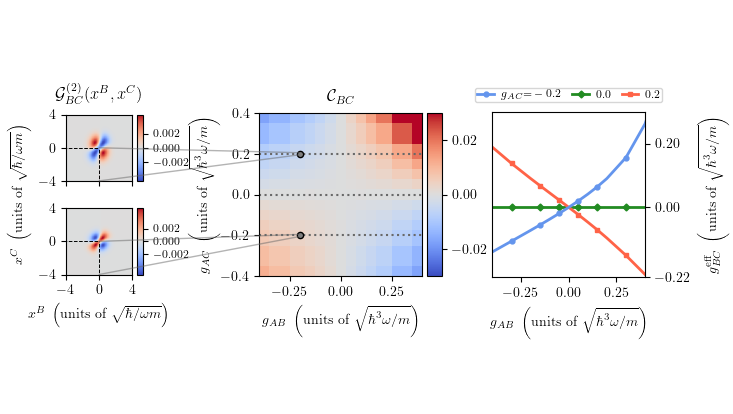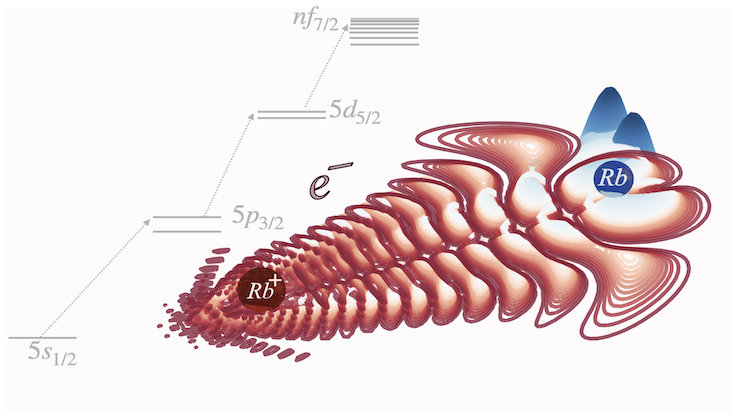Theory Group of Fundamental Processes in Quantum Physics
Prof. Dr. Peter Schmelcher
Ultracold atomic and molecular systems have become one of the most intense research areas in modern quantum physics. Due to the comprehensive control of the external and internal degrees of freedom by employing quantum optical techniques and due to the diversity of the trapping potentials as well as the tunability of the atomic interactions a plethora of quantum phenomena at the mesoscopic to macroscopic scale have been discovered. The group explores several complementary aspects of ultracold physics.
The electronic structure and quantum dynamics of ultracold Rydberg atoms and molecules including their dressing in light fields and the coherent excitation dynamics in multi-trap arrays represents one focus. To develop a deep understanding of the mechanisms of quantum and in particular tunneling dynamics is our goal in case of strongly correlated bosons in low-dimensional traps including optical lattices and waveguides. Ultracold scattering in low-dimensions leads to novel interaction properties of atoms with an immediate impact on the corresponding many-body systems. Confinement-induced resonances and molecules formation as well as confinement-induced transparency are examples. We study nonlinear excitations of Bose-Einstein condensates such as solitons and vortices including their stability, structure and dynamics. Formation of ultracold molecules and steering their dynamics via external electric fields such as quantum control of photoassociation processes open the door to a quantum state selective chemical reactions dynamics.
Our group explores fundamentally new concepts in the field of symmetries. Starting out with the theory of local symmetries, we have in the past few years developed the concept of latent/hidden symmetries closely relating to spectral graph theory. Meanwhile a substantial number of applications in wave physics (quantum mechanics, wave optics and acoustics) have emerged from those investigations.
In the field of quantum technology we are focusing on the development of quantum optimization algorithms in close collaboration with experimental groups as well as partners from industry and startups exploiting both entanglement as well as the superposition principles to solve algorithmically challenging problems of broad societal interest.







